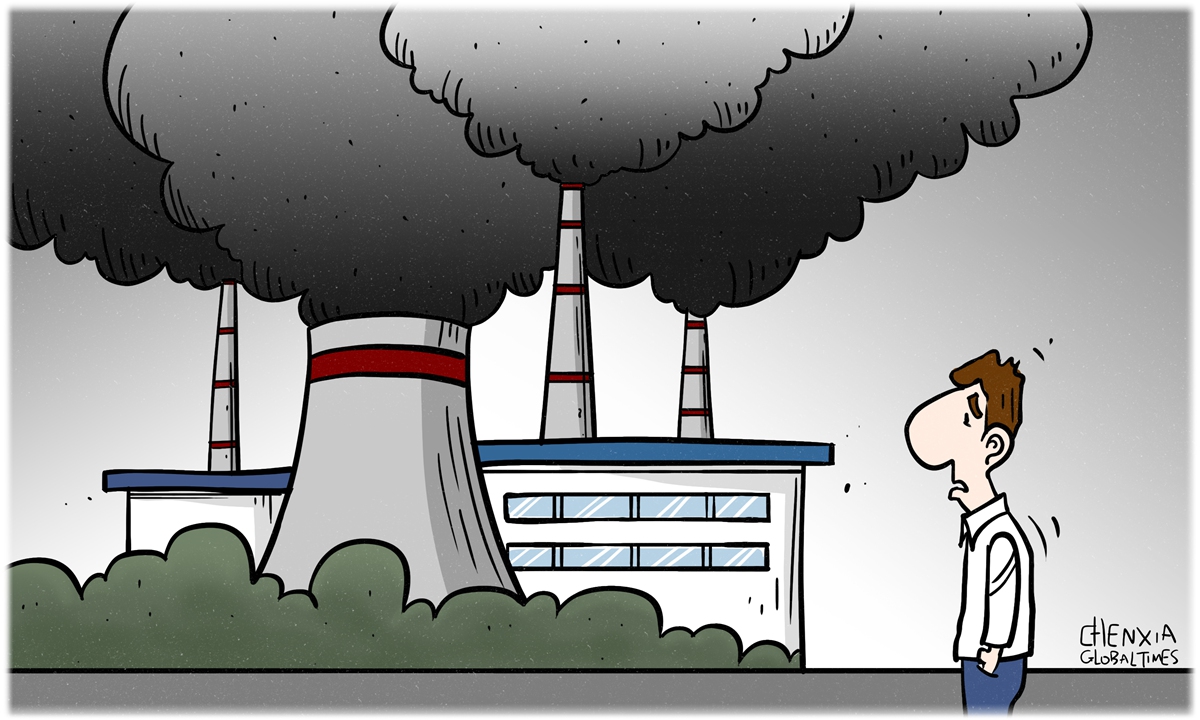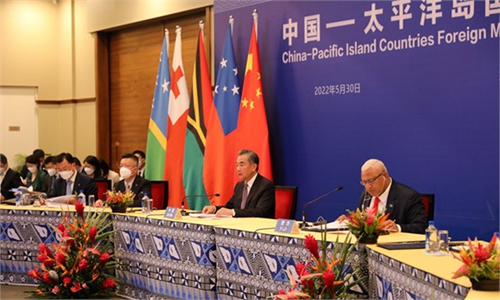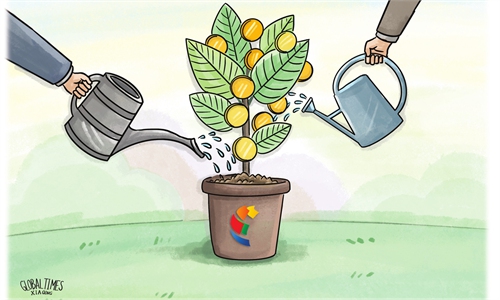
Illustration: Tang Tengfei/Global Times
The Netherlands on Monday lifted a cap on electricity generation from coal-fired plants following an increasingly serious energy crisis in Europe. And, Germany, to save natural gas, also moved to restart the dirty coal-fired generators.An increase in the use of coal is an inevitable result of many European countries' efforts to reduce their reliance on Russia's natural gas and oil exports, but can those nations advance this process without adding pressure on the environment? The answer is probably not.
The Netherlands said it would lift all restrictions on power stations fired by coal and other fossil fuels, which were previously limited to just over a third of the country's total power output, AFP reported. Not long ago, some other European nations, including Germany and Austria, also announced emergency measures to withdraw the restriction on production for coal-fired power stations to ensure energy security.
Officials in Brussels have warned EU member states not to backtrack on their long-term drive to reduce fossil fuels, but this can hardly be achieved. Without Russia's natural gas, going back to dirty coal is almost the only option left for those EU countries which have been struggling to meet this summer's peak consumption for electricity.
Fossil fuel is the primary cause of climate change, making our living globe warmer. When fossil fuels are burned, they release large amounts of carbon dioxide into the atmosphere. If the ongoing energy crisis continues to rattle Europe, the carbon emissions from fossil fuels are expected to increase substantially in the coming years.
US President Joe Biden in March announced a ban on Russian oil and liquefied natural gas. Recently, US politicians have spared no effort in persuading EU countries to take action against Russia in a bid to "inflict further pain" on Moscow by hindering Russia's exports of energy products.
Data show that around 45 percent of the EU's natural gas and 30 percent of oil came from Russia in 2021. In contrast, US' imports of Russia's natural gas are negligible. The US plays an important role behind the current energy crisis in Europe, but it seems the EU countries will mainly be the ones suffering from the pain.
The US-led Western developed countries often use unilateral sanctions for its own interests. The world is facing the prospect of a dramatic shortfall in food and energy with unilateral sanctions imposed by the US and West. Currently, it seems climate change has become a secondary concern.
The US is unlikely to claim responsibility for a rise of the greenhouse gas emissions, and instead, Washington may criticize European countries and put pressure on them to cut emissions, which will likely drag down their economic development.
At the third virtual gathering of the Major Economies Forum (MEF), Biden called on major economies in the world to redouble their efforts to combat climate change. He urged countries to accelerate moves to reduce greenhouse gas emissions.
The world needs multilateralism and that it is particularly important for major countries to lead by example in close cooperation and concerted efforts to reduce carbon emissions and protect the world's environment. European countries should have a clearer understanding and avoid to be used as a tool by Washington at their peril.
The author is a reporter with the Global Times. bizopinion@globaltimes.com.cn



